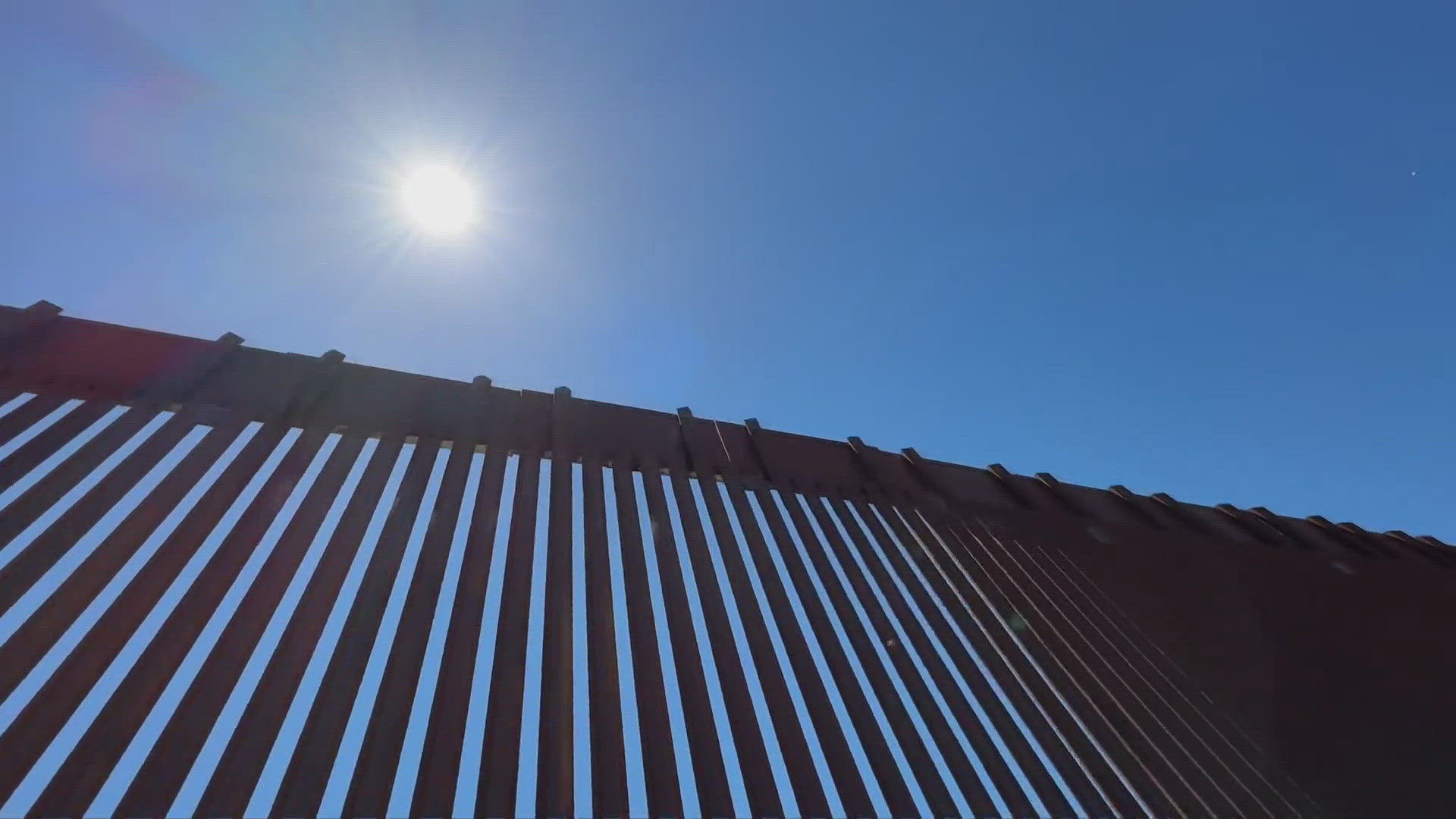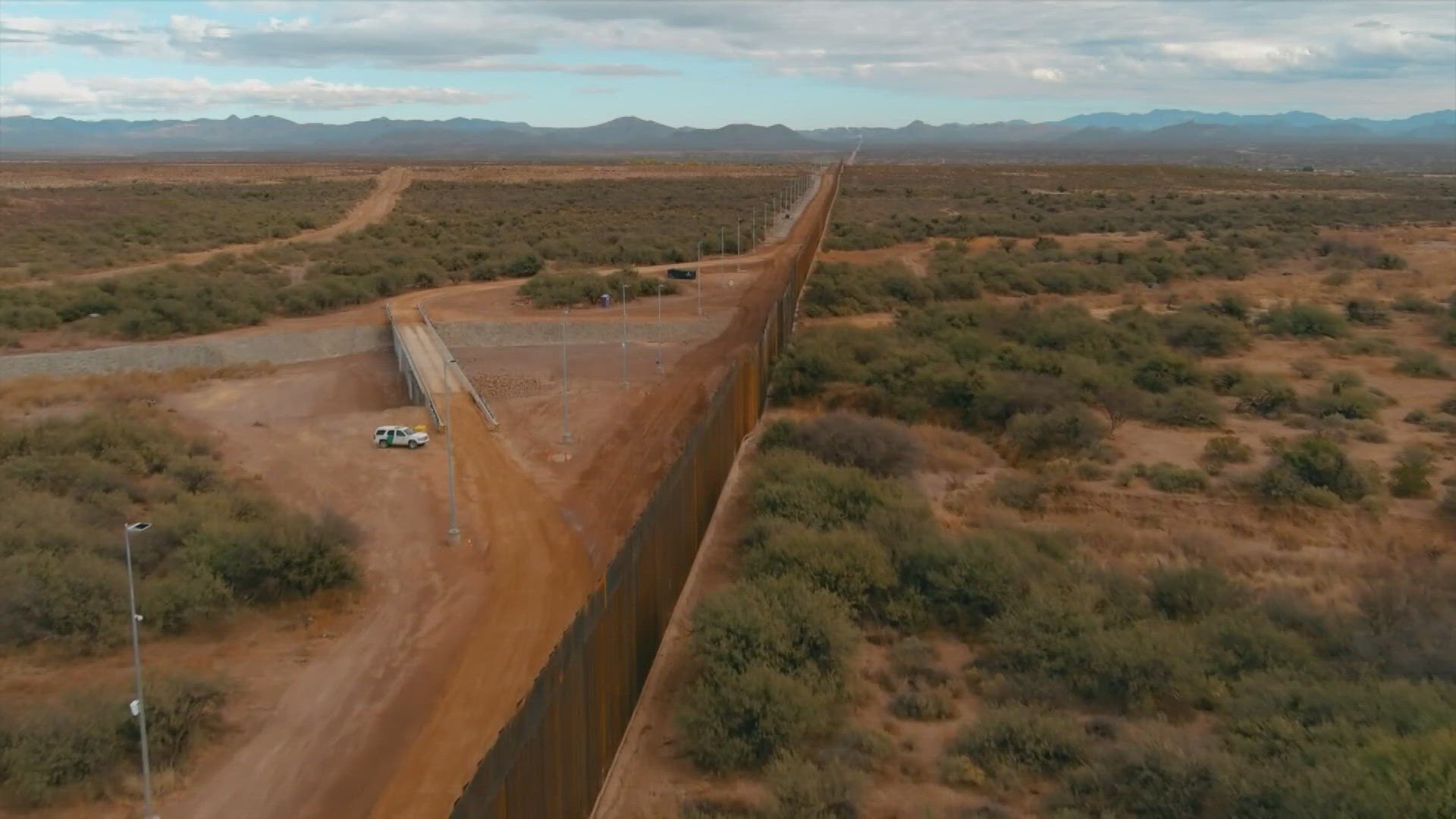PHOENIX — In a party-line vote, Arizona lawmakers on Wednesday advanced what would be one of the toughest immigration laws in the country.
The Republican-sponsored "Secure the Border Act" would let Arizona voters decide in November whether local law enforcement officers can arrest undocumented border crossers — a job that courts have ruled falls under federal authority.
VERSIÓN EN ESPAÑOL: Los legisladores de Arizona impulsan una de las leyes fronterizas más estrictas del país en la próxima votación estatal
"The voters are going to get the opportunity to decide border security issues and safety for this state," Senate President Warren Petersen said at a news conference.
"They're going to be able to decide to keep Arizona safe."
The ballot referral - HCR 2060 - could be approved by the full Senate and House as soon as the end of next week.
Record numbers of migrants have crossed the Southwest border over the last two years.
Polling shows immigration has become a top issue for voters.
The unprecedented surge by migrants from several nations has raised concerns about national security and personal safety, as drug traffickers exploit the border crisis.
Specter of SB 1070
To its opponents, the Republican referral raises the specter of Arizona's SB 1070, a 2010 immigration law struck down by the U.S. Supreme Court.
"I'm not as emotional this time as I was 14 years ago, but I'm angrier, because I thought we put that behind us," said Daniel Ortega, an attorney who helped lead the fight against SB 1070.
The fear of deportation terrified undocumented migrants and their families. Former Maricopa County Sheriff Joe Arpaio launched "immigration sweeps" that a judge later ruled racially profiled Latino citizens.
The pain was also economic. Arizona was the target of boycotts.
Several businesses and trade groups oppose the ballot referral because of its potential impact on their labor force.
To this day, undocumented workers make up a significant segment of the construction and hospitality industry work forces.
'No room for profiling'
Petersen tried to put fears of racial profiling to rest.
"There's no room in your story for racial profiling," Petersen said in comments aimed at one journalist.
Petersen cited Yavapai County Sheriff David Rhodes' statement that law enforcement officers would need evidence of an illegal border crossing before making an arrest.
"Somebody said, 'Oh, does that mean a police officer in Gilbert will ask you for your papers?" No, that's not what that means, Petersen said.
No money set aside yet
Rhodes, who was representing the Arizona Sheriffs Association, said sheriffs in the state's border counties - Yuma, Pima, Santa Cruz and Cochise - would bear the brunt of arresting undocumented immigrants.
"I've asked my legislative friends the questions, Where is the money going to come from?" Rhodes said.
"How are we going to stand up public safety infrastructure? Where are we going to hold people that have been arrested? How are we going to deal with women, children, different people that are coming in?
"How are we going to do these things? There's not a lot of answers at the moment."
The ballot referral resolution doesn't provide any cost estimates.
There are no set boundaries for enforcement.
Immunity clause for law enforcement
In addition, an immunity clause shields law enforcement, other government employees and governments themselves from civil lawsuits - such as a racial profiling claim - that might arise from the enforcement of the law.
"We've seen this movie before with SB1070," said Joseph Garcia, vice president of Chicanos Por La Causa.
"We know how it ends - it's loss of labor, it's loss of reputation for Arizona."
Ortega conceded the referral might win.
"I always say that sometimes you can achieve what you want politically, but ultimately you must face the legal consequences of your actions," he said.
"In this case, they could win politically, but they will lose legally."
In addition to giving Arizona police the power to enforce federal immigration laws,
The ballot referral would mandate broader immigration checks for people seeking jobs and tougher sentences for fentanyl-related deaths.
Hobbs: 'Black eye on state'
The ballot referral sidesteps Democratic Gov. Katie Hobbs' veto earlier this year of a similar bill that would have made it a state crime to cross the border anywhere other than a port of entry. A referral to the ballot by the Legislature doesn't require the governor's approval.
In a statement Wednesday, Hobbs said:
"This measure will divert law enforcement resources away from stopping crimes like burglary and theft, cost state and local governments millions of dollars, and leave a black eye on our state's international reputation as one of the best places in the world to start and grow a business."
When would border law take effect?
If voters approve the Legislature's ballot referral in November, how soon could Arizona law enforcement start arresting border crossers?
There are at least two answers: It could be a while — or never.
The Arizona measure is based on Texas law SB4, which has been hung up in the courts while judges review whether it's constitutional.
The irony of Arizona waiting in line behind Texas is that the Texas law was written in a way the would overcome the U.S. Supreme Court's objections to Arizona's own SB 1070.
The high court ruled that police don't have the authority to arrest someone based on their immigration status.
A Supreme Court test of the Texas law is possible. If the Texas law were upheld, the Arizona law would take effect 60 days later.
Given the Supreme Court's pace, it's possible a ruling on the Texas law would come down more than a year from now, in June 2025.
If the Texas law were struck down, the Arizona law wouldn't take effect, but the other parts of the initiative would.
UP TO SPEED
Catch up on the latest news and stories on our 12News YouTube playlist here.


